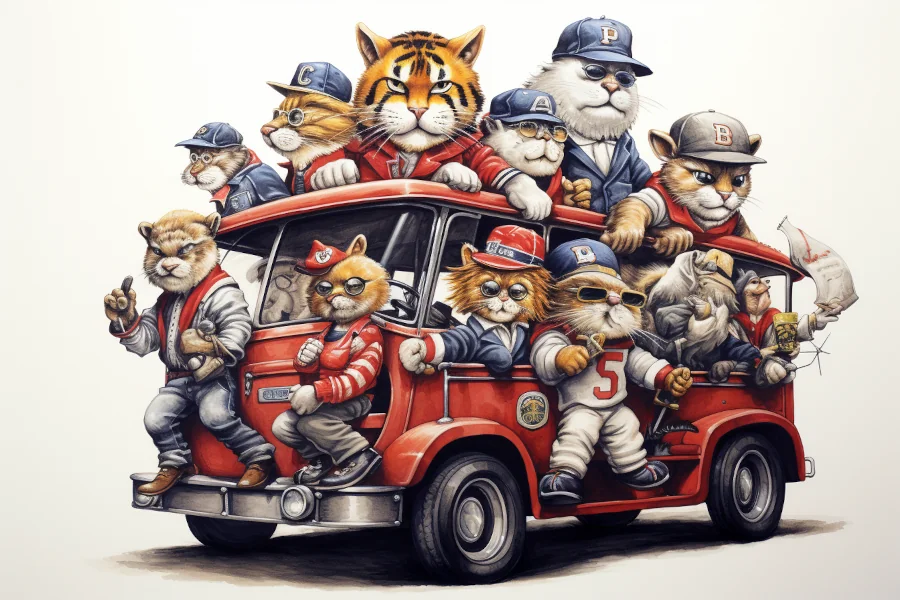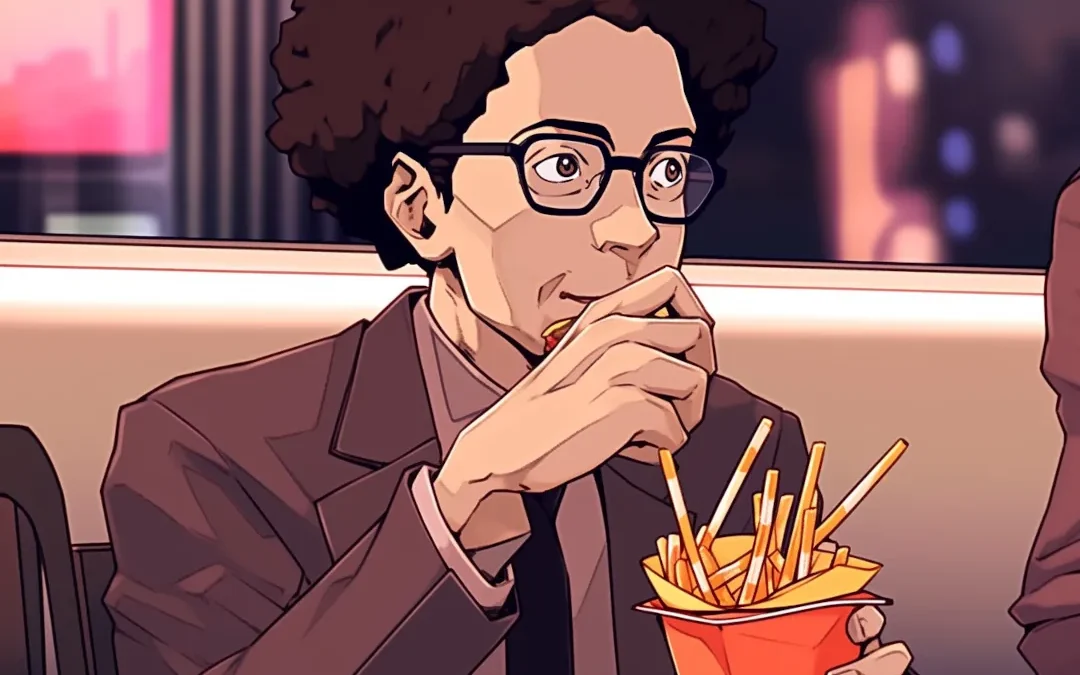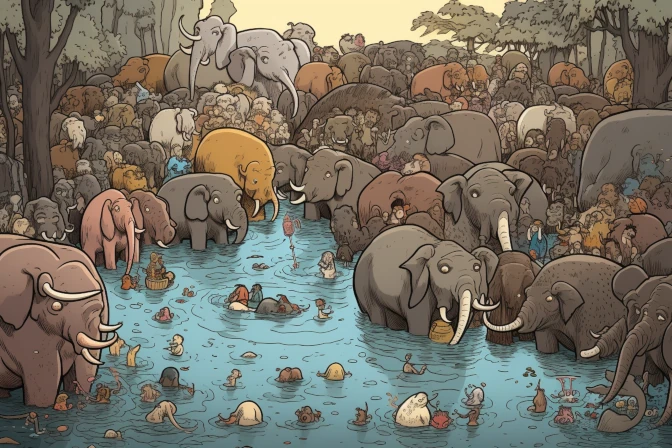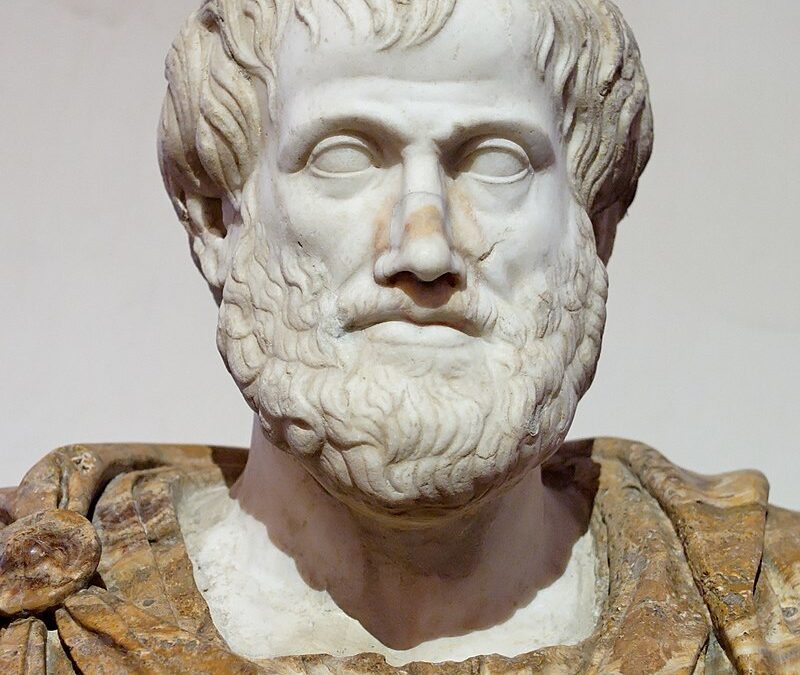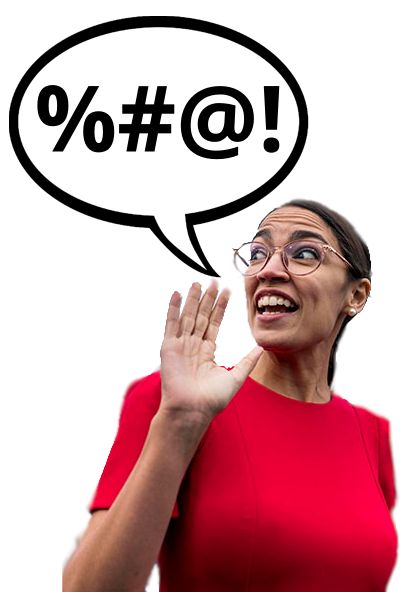An article in Politico written just before the 2022 election contrasts two sides of a fissure within the Democratic party, each determined to convince the party to adopt their strategy. On one side, we have the centrists who believe vocal progressives frighten away voters in crucial flyover states. On the other side, the progressives argue that centrism lacks any substance to build momentum. Both sides are wrong because they rely on the flawed premise that the Democratic Party is worth fighting for.
As one half of a political duopoly, the party itself creates a barrier to a truly representative government. Only by replacing our current electoral system with a system that results in more proportional representation can we realize the ideals of democracy. That means the composition of our government more closely resembles that of the electorate. By embracing a system that lacks proportional representation, both sides of the Democratic fissure seek to be a tyrant over the other.
The rise of Donald Trump has led to a flurry of political forensic analyses attempting to determine how an illiterate buffoon could have taken over the Republican party. The importance of this question cannot be underestimated, but it must be asked for the right reasons. A coalition held together by values—centrist, progressive, or otherwise—cannot mimic the Trump strategy because it explicitly rejects values. Trump relies on cynicism and malleability, shamelessly pandering any politically advantageous ideas. We cannot learn from Trump how to take over a political party unless we only value political power.
Instead of centrists and progressives fighting behind the scenes for the soul of the party, they should openly fight on the ballot. With only two major parties, each has the potential to monopolize political power. Since both parties are composed of much smaller coalitions, each is susceptible to being taken over by the most motivated or entrenched coalition. We can only prevent a party from being taken over by a poisonous faction by transforming intra-party fights into inter-party fights.
Wouldn’t fracturing one party be a boon to the the other? If the proposal simply involved starting new parties, yes. Third parties do not work in the existing system. Although well accepted and frequently griped about, for some reason we do not view the impotence of third-parties as the primary problem with American politics. Power has been concentrated in a political duopoly, which makes political power fleetingly impossible for practically any voting bloc. Even if your preferred party gains power, they’re now subject to political infighting as various coalitions attempt to assert themselves. The fickle public grows tired of this lack of progress and oscillates from one party to the other.
Democracy means “rule of the people,” but the methods for achieving this are diverse in execution and efficacy. We should consider “rule of the people” a goal to aspire to. A representative democracy best achieves that goal by representing as many people as possible. “The people” should be considered all the people, as an aggregate, not a majority that could constitute any number between 51-100%. Democracy should encourage citizens to form many coalitions of like-minded individuals, not two coalitions held together by political necessity.
The coalition structure of political parties inevitably prioritizes power over values. We tend to view politicians as immoral. Blaming individuals allows us to overlook the underlying systemic issues that have created our problems. Democrats, for example, attempt to form a coalition consisting of individuals concerned with minority issues, reproductive rights, criminal justice reform, unions, educators, and a whole host of other issues. The party platform attempts to appease the major forces within the coalition despite the fact that some coalition members may not support others. Inevitably, coalition members will fight to control the party. Some will actually influence the party while others may receive little more than lip service.
If a political party cannot adequately represent its membership because the member base is far too large and diverse for a single platform to cover, it stands to reason that the party will only represent the interests of certain cohorts within its coalition. Do we consider this to be democratic? Does this system actually represent the will of the people? Nothing destroys the values a political party purports to support more than the prospect of political monopoly. This is neither intentional nor nefarious—partisans always see the ends as justifying the means, they just don’t describe it in such nakedly Machiavellian terms.
There are several methods for achieving proportional representation. Most notably, The Fair Representation Act would bring proportional representation to the House of Representatives using the single transferable vote. This election system combines ranked-choice voting with multi-member districts. For example, in Ohio we have fifteen representatives. We could rank these representatives on our ballot from the most to least favorable and then the top fifteen would be chosen to represent us. Although we rank as many candidates as we want, our vote only goes to our top candidate that makes the cut. If your top choice fails to make the cut, your vote goes to your second choice and so on. The end result would make gerrymandering impossible and no longer confine representation to two parties.
Neal Meyer, writing for Jacobin, recently argued that progressives need to copy the hardball tactics of the far right as they forced concessions from Kevin McCarthy during the House Speaker vote. Meyer has succumbed to the politics of power, viewing political power as a zero sum game. We cannot allow our desire for a team win to allow us to forsake the ideals of democracy. A system in which any party has a majority in the House of Representatives is unacceptable because it means that the American people are not properly represented. Any potential Speaker of the House should be forced to negotiate a coalition among multiple parties. Instead of centrists and progressives fighting for the heart of the Democratic party, they should unite behind the cause of proportional representation so they can be free to fight on the campaign trail.

